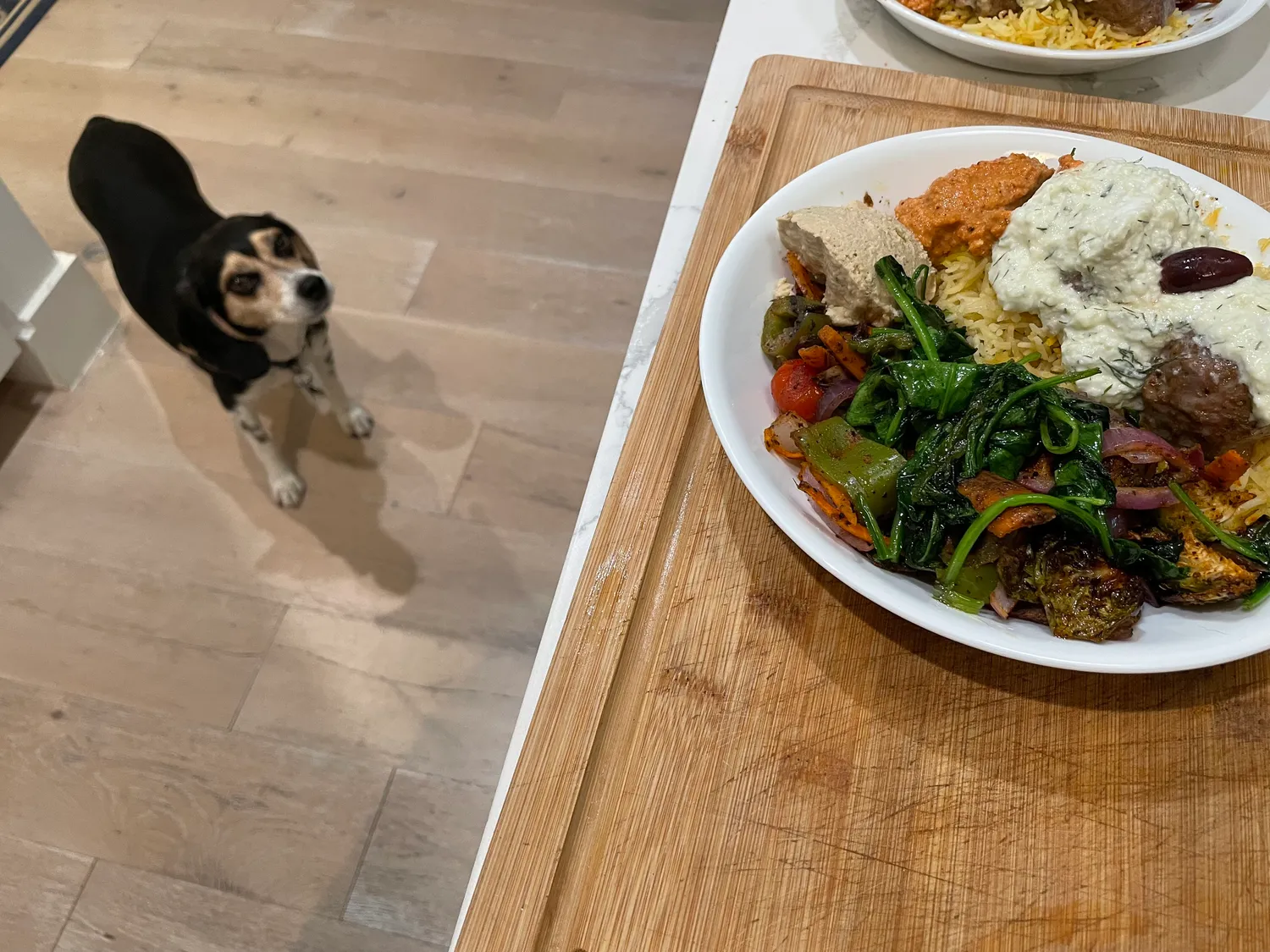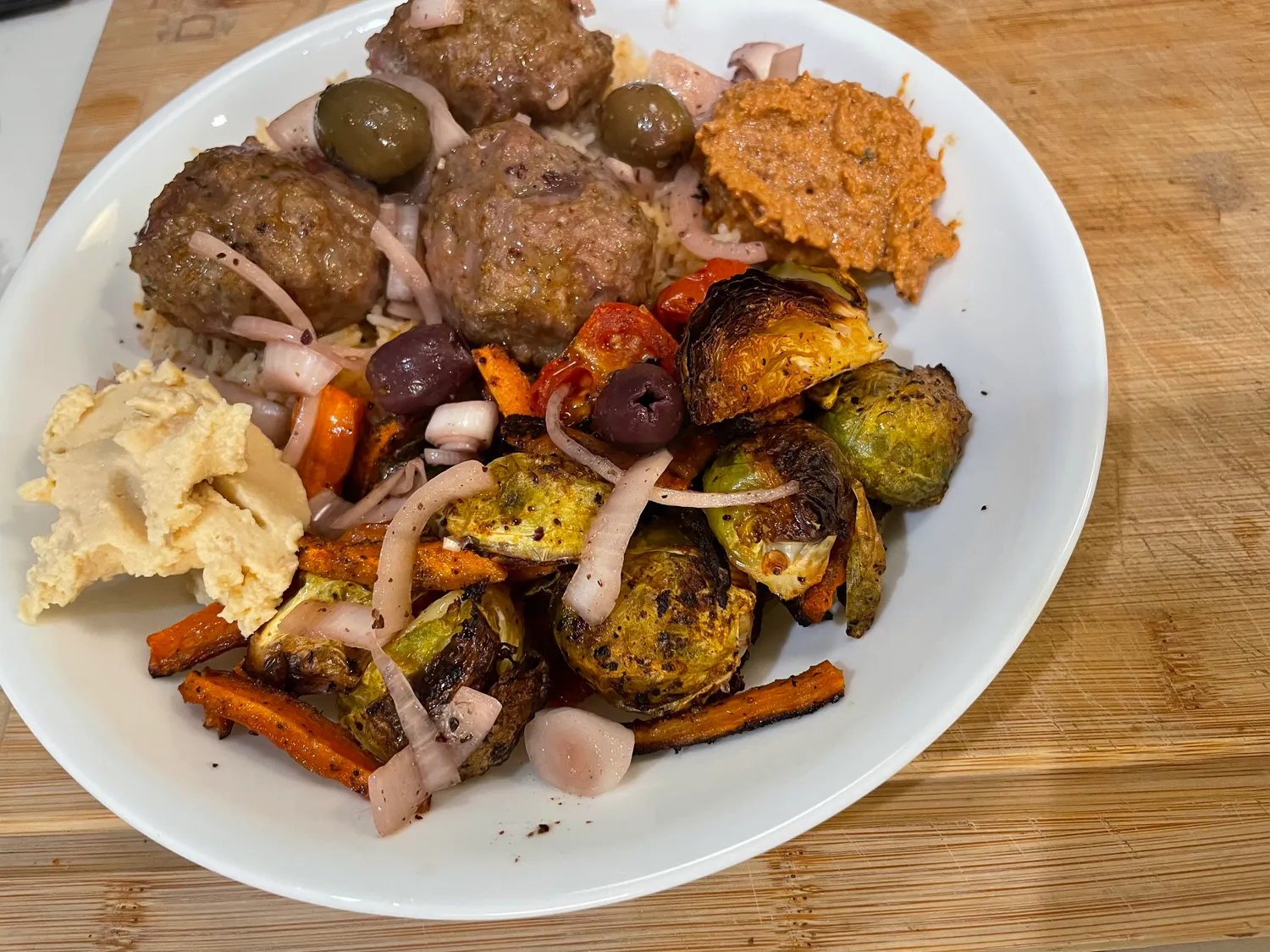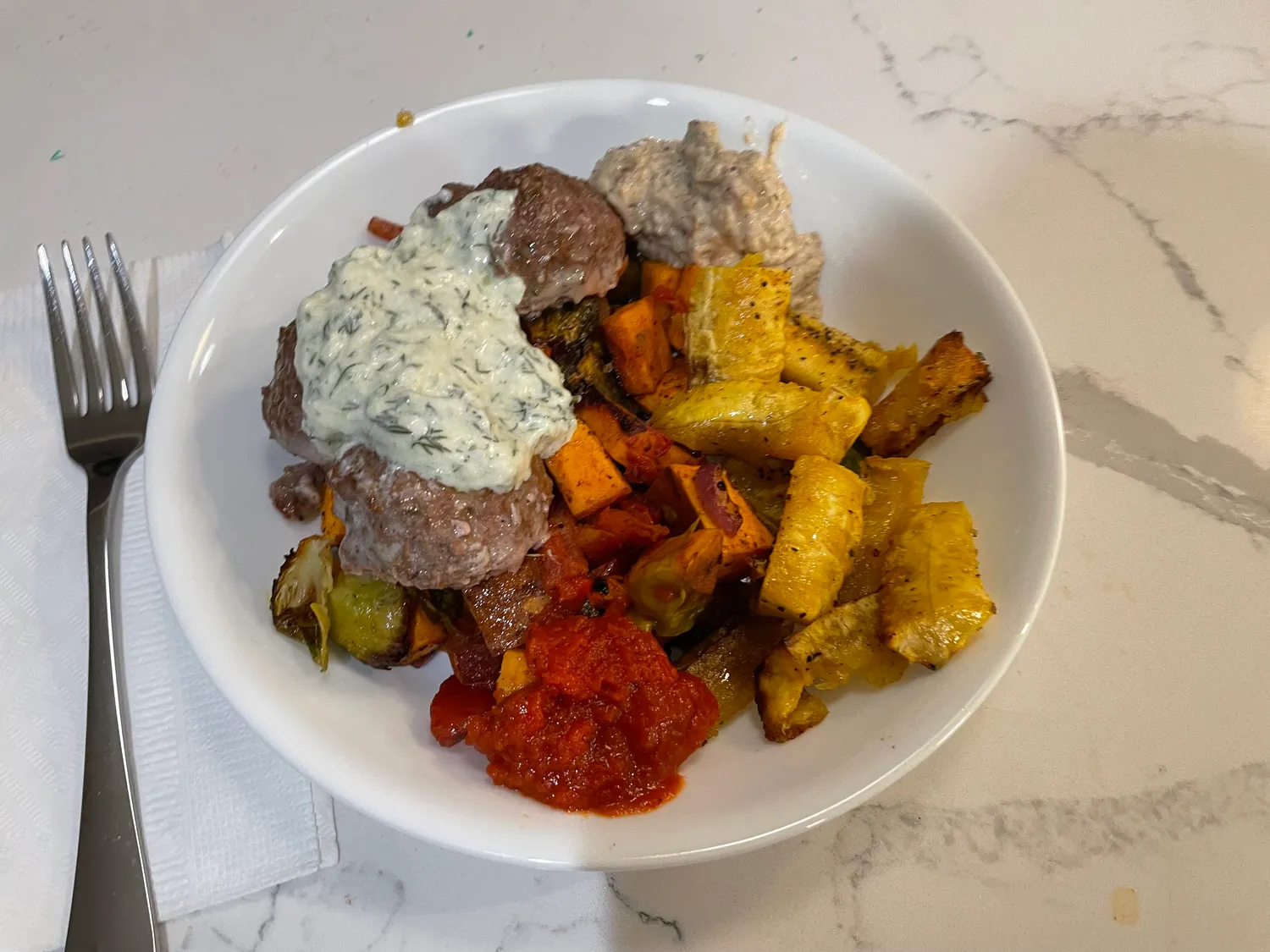
Over the pandemic I picked up a ready-to-grill Morrocan-seasoned lamb kebab, roasted it and served with tzatziki. It worked so well that I started on ways to do it myself, starting with our existing meatball recipe.
Ingredients
- 1 lb ground lamb
- Spices, which can be done a few ways.
- Classic: taragon, spicey paprika, sumac.
- Lebanese: Cumin, Allspice, Cardamon, garlic, coriander, garlic.
- Greek: Oregano, taragon, cayenne
- Olive oil
- 1 egg
- A little sea salt
- Bread crumbs. Don’t skip, these are an adhesive that keeps it together.
Steps
- Preheat oven to 425 degrees
- Mix your spices in a small bowl. There’s no wrong answer here, follow your nose. Cumin, Sumac and Tarragon work especially well with lamb.
- Wearing gloves, cover the meat with spices, bread crumbs and egg, and oil in a large bowl. Knead by hand until its all basically blended together.
- Form into balls, placing them on cast iron. Aim for the size of a golf ball.
- Cook in the oven for 12 minutes.
- When the time stops, sear it on top of the stove (a hot medium). The pan is already hot so it should start searing immediately a minute on each side will do—you’re looking for a bit of a crust, then cut the heat.
Assemble in a bowl with roasted vegetables, rice, mezze, and other toppings.

This is a recipe that it works well to use meat as the centerpiece but not the whole show. I like to throw all the mezze at it—tzatziki, muhammara, baba ganous, harissa.

Vegetables
The base.
- Base of yellow rice, sweet potato, or red potatoes
- Onion
- Something green, like brussels sprouts (char ‘em) or brocolli.
- Carrot, bell peppers, tomatoes. The variety and flexibility is the point.
Tossed with oil and spices similar to the meatball profile. Roast 25m on 425°F for convection.
Toppings
- Spinach, wilted in some EVOO, salt, pepper
- Tzatziki, baba ganous, harissa, hummus, muhammara (red pepper dip), or improvised yogurt sauce. We’ll talk about that later.
- Olives
Which leads to the big question: is this kofta?
Kind of? It is not, strictly speaking, the same thing you’ll find at any kebab house. I think the original meatball method was Italian? I suppose we could call it that because it makes us feel fancy and well-traveled.
But also “kofta” just means ground, and sooner or later it dawns on me that while everything may sound better in a foreign language, ultimately, most of the time, what people around the world are saying is no more profound than “meatball.”
Don’t overthink it, just serve with a bright granche and pet your angry beagle.